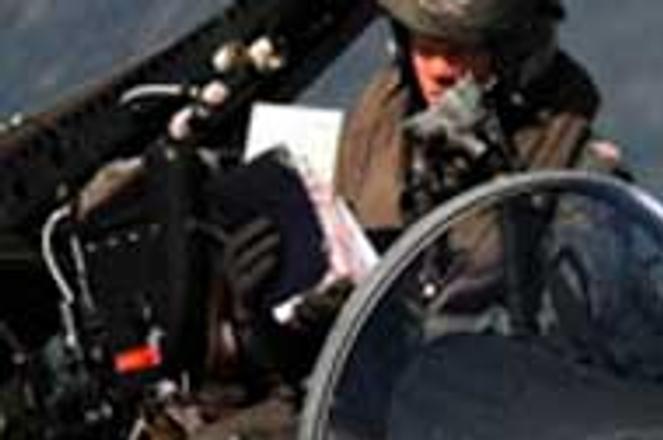Alerted by media reports, the public was shocked to discover that the Army was selling serviceable Mig 21 jets for $1,300 each.photo: TASR
A little known company in the industrial eastern Slovak city of Košice came within inches of a business windfall - buying 35 older Mig 21 Russian fighter jets from the Slovak army for a mere 52,000 crowns ($1,300) each.
But the company's plans were foiled when the private TV Markíza reported on March 3 that at least two of the 'obsolete' bargain planes were still operable. Stung by the storm of public criticism which erupted, the Defence Ministry announced on March 9 that the sales would be investigated and that until a verdict was delivered, Perun could not take possession of or use the jets.
Contacted by The Slovak Spectator on March 10, Perun co-owner Imrich Jurčák said that "we have to wait for the government's decision - until then there's nothing we can do."
Too good to be true
The original contract between Perun and the Defence Ministry was signed on October 15, 1998. The terms of the deal stipulated that Perun would pay for the 35 scrap Mig 21's by rendering mechanical services to the army and supplying spare parts for the army's current equipment.
According to the terms of the contract, the sale came into effect on January 29.
Perun representatives visited the Sliač air base, where the Mig's were stored, for the first time on February 25. It was at that point that state officials realised something was up - the list of planes that Perun was claiming under its contract included two jets which were still in use by the Air Force.
Jozef Pivarči, state secretary at the Defence Ministry and himself a former jet pilot, said that the ministry began investigating the sale as soon as it realised serviceable jets were about to be sold as scrap.
Pivarči added that the idea of selling of the aircraft had been hatched by the General Staff of the Slovak Army in 1997, while he himself had been serving as Commander in Chief of the 3rd Air Force Corps in the central Slovak city of Zvolen.
Former Army Chief of Staff Jozef Tuchyňa advised the Defence Ministry in January 1998 to allow the demolition or sale of obsolete equipment.
"[At that time] I personally argued against the decision to sell off these [35] airplanes," Pivarči said. "My idea was to refit the jets and hold on to them for training new pilots," he said, "because the operating costs of Mig 21's were less than one tenth that of the Mig 29 fighter jets [currently in use in the Slovak Air Force].
Pivarči explained that most Slovak pilots suffered from one great deficiency - an insufficient number of annually scheduled flying hours. The skills of these airmen, he said, were therefore apt to become rusty inthe absence of regular training.
Despite the objections of officers like Pivarči, however, the State Defence Council issued a decision on April 30, 1998 permitting the sale of obsolete materiel, including the 35 Mig 21's. The Army subsequently announced a tender on the sale of the jets and other equipment.
Foreign sales?
Perun won the tender in the second round and on October 15, 1998 the contract between the company and the Army was signed.
The sale became an issue of wider public interest five months later when TV Markíza reported that Perun intended to have the jets refitted and rearmed by a firm known as Israel Aircraft Industries, and then sell them outside Europe.
Perun's Jurčák said that neither he nor his brother Ján, who is a co-owner and director of the firm, knew anything about Israel Aircraft Industries and the services this company was offering.
"I have just learnt that such a firm exists from today's papers," he said.
An press official with Israel Aircraft Industries, when contacted by The Slovak Spectator on March 10, said that her firm had no contract with either Perun or any other Slovak-based firm for the sale of Mig 21's from Slovakia.
One of the most controversial aspects of the Perun contract was the price the company paid for the aircraft.
An Air Force commission appointed by Air Force Chief of Staff Štefan Gombík set the value of each Mig 21 at 52,000 Sk per piece, regardless of the condition that each individual airplane was in.
The ministry's Pivarči said called the sale price "too low," and said "I personally would like to know why it was exactly 52,000 crowns." However, he was unable to say what would have been a reasonable price for the scrap jets.
Jurčák said that Perun had not influenced the price of the planes."We just entered the tender - the army set the price, so you better ask them why it was what it was."


